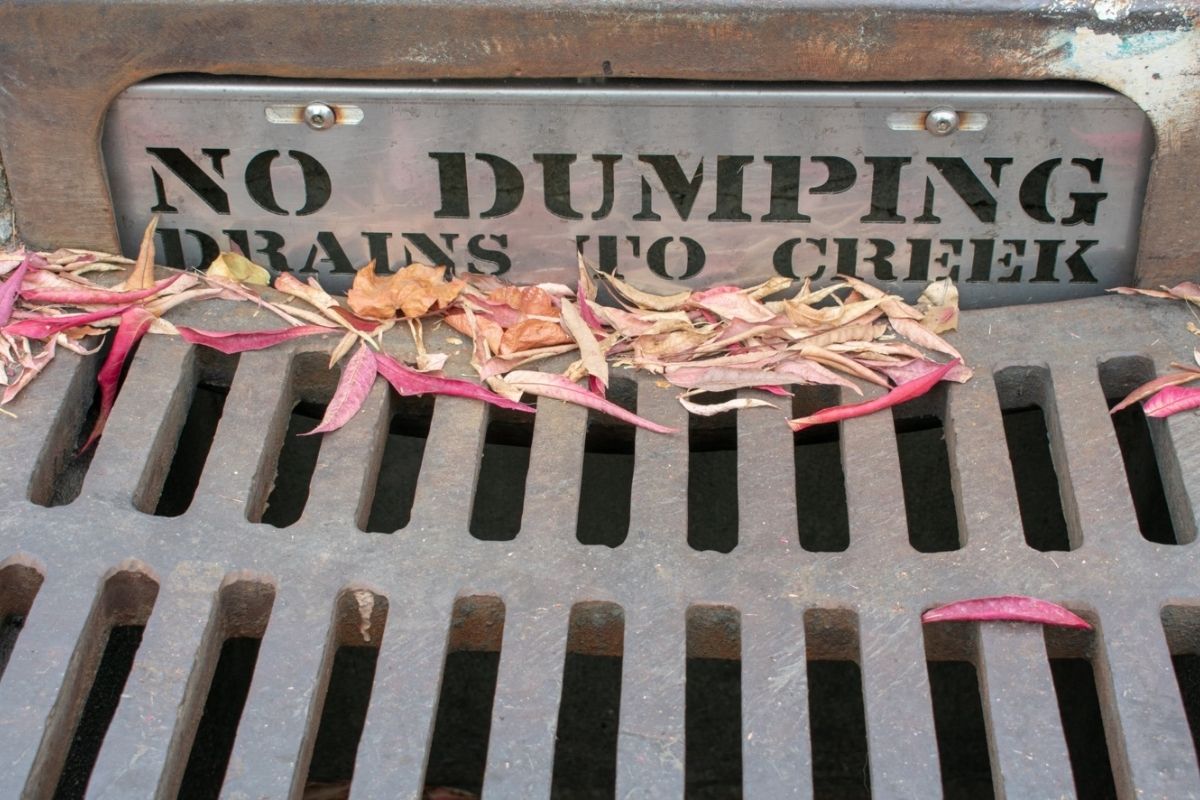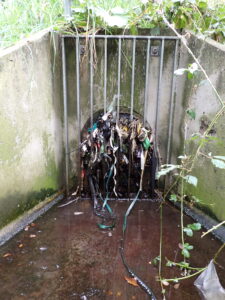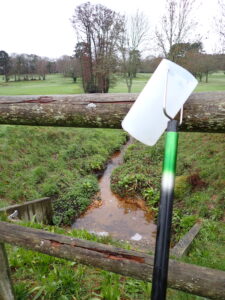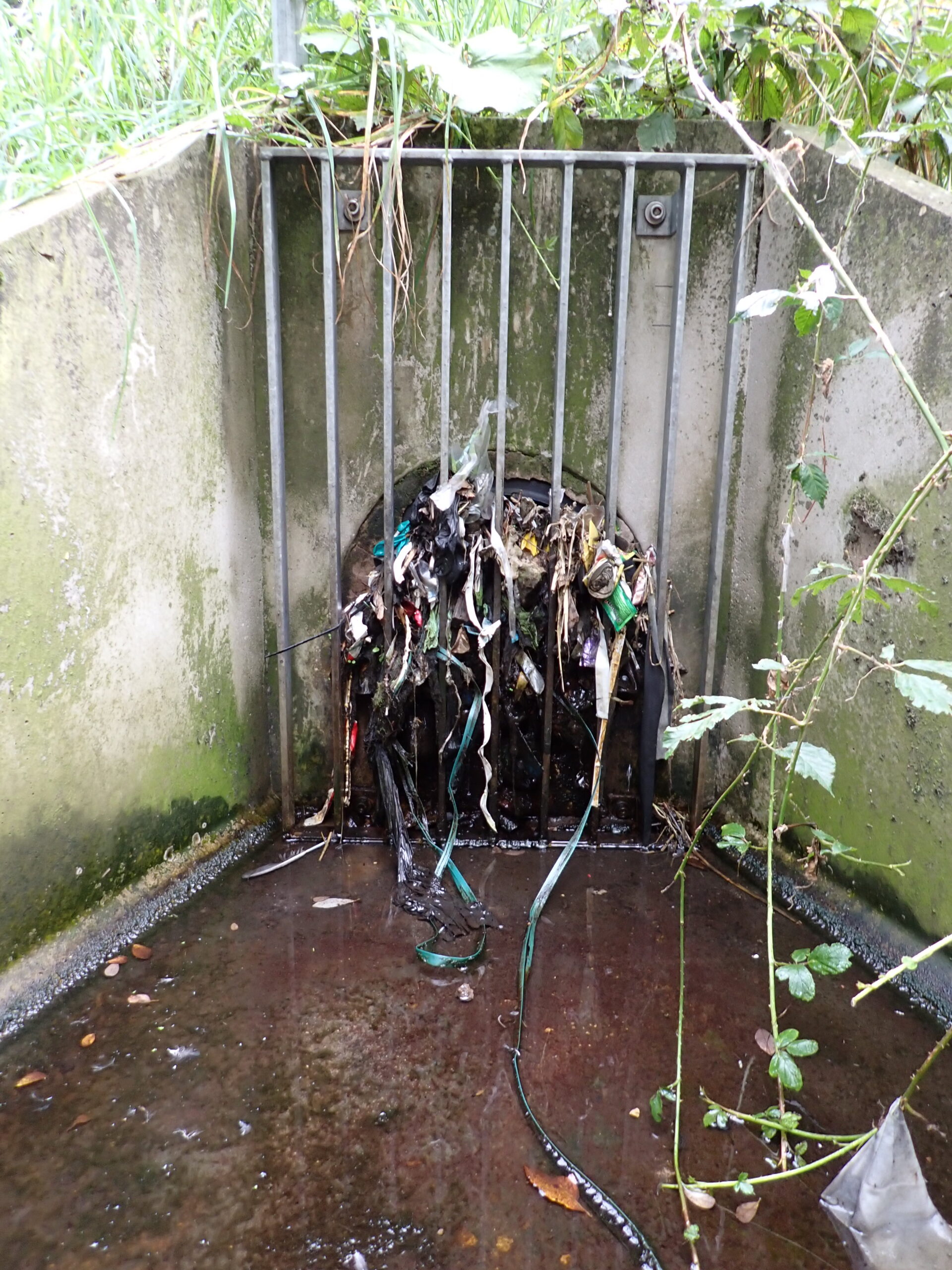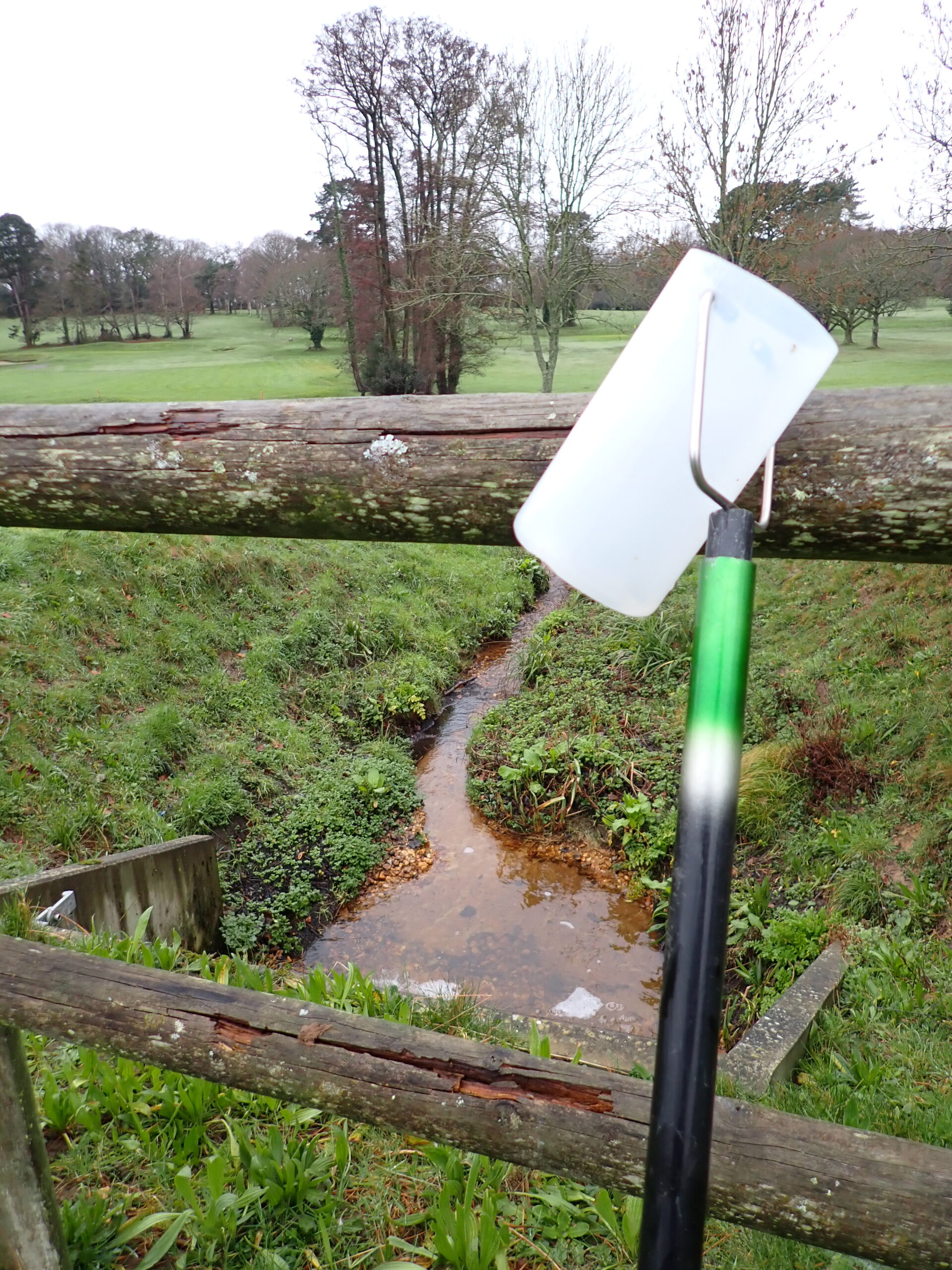Heavy rains can pick up leaves, grass clippings, animal droppings, and other seemingly harmless decaying organic matter and push into our waterways through the stormwater network. Although degradable, excessive organic waste increases the nutrient load in a waterbody. Excess nutrients can cause imbalances in aquatic ecosystems and increase the risk of toxic algal blooms.
This article will talk more about organic matter as a stormwater pollutant and discuss ways to mitigate its impacts.
How Organic Matter Become Stormwater
In urban areas, leaf litter and grass clippings contribute a significant amount of excess nutrients present in stormwater. Organic debris releases Phosphorus, an essential nutrient needed by primary producers (i.e. organisms that produce food and oxygen. Examples include plants, algae, and some bacteria and fungi). Phosphorus is known to be a rate-limiting nutrient, which means that a significant increase in its availability in an ecosystem can also increase the rate of biological processes, including the growth rate of primary producers.
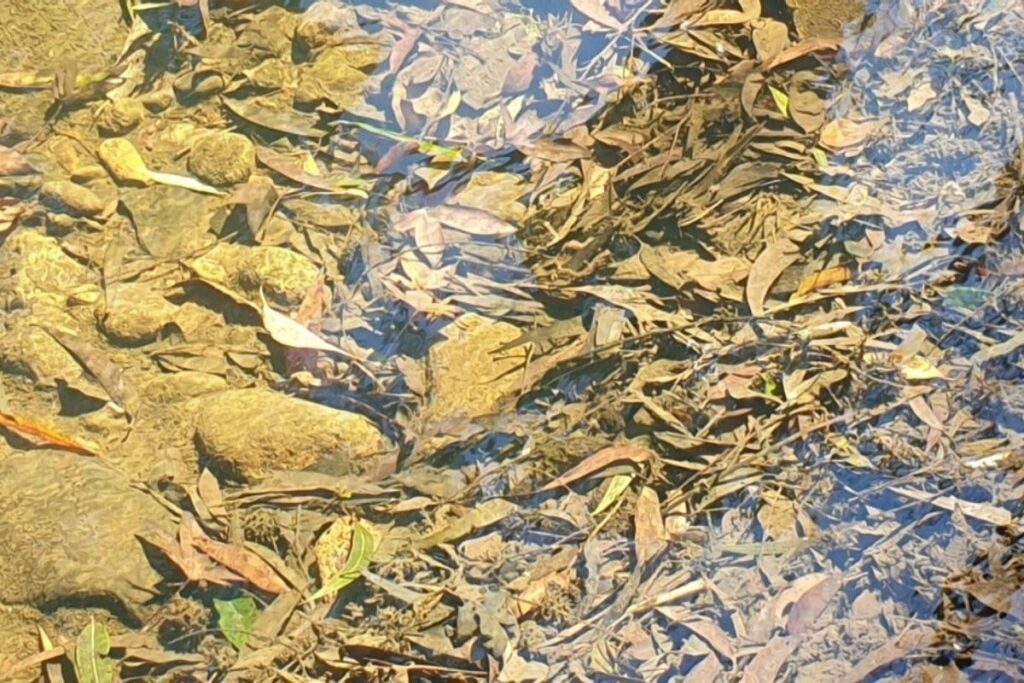
Another important limiting nutrient is Nitrogen, of which manure and pet waste are dominant sources. The fertilisers we use in our garden and pet droppings we fail to pick up can be swept away by heavy rain and added to stormwater. In older cities, human waste can also be introduced to stormwater during heavy rain events, particularly in combined sewage and stormwater systems. Intense rainfall can make these systems overflow, allowing sewage waste to escape and travel through stormwater runoff into nearby waterways.
In rural areas, organic matter washes off agricultural land and into road drains and ditches that then wash into stormwater systems. This can be a particular problem when it rains, just as farmers are busy applying slurry and fertiliser to the fields. These newly applied nutrients will then wash into local rivers and streams.
Impact of Organic Matter as Stormwater Pollutants
As stormwater introduces excessive amounts of organic matter into waterways, high levels of Phosphorus and Nitrogen also enter these ecosystems. This process by which waterbodies progressively become saturated by nutrients is called Eutrophication. Excess amounts of these nutrients cause rapid growth in a group of primary producers that can cause concern—algae.
Algal blooms are notorious for using up the available oxygen in water bodies. Blooms can last anywhere between a few days to a few months. When the bloom is at its end and the algae start to die, the microbes that decompose dead algae then use up even more of the oxygen that’s left. Severely low oxygen levels cause mass die-offs in fish and other aquatic organisms that live in the body of water.
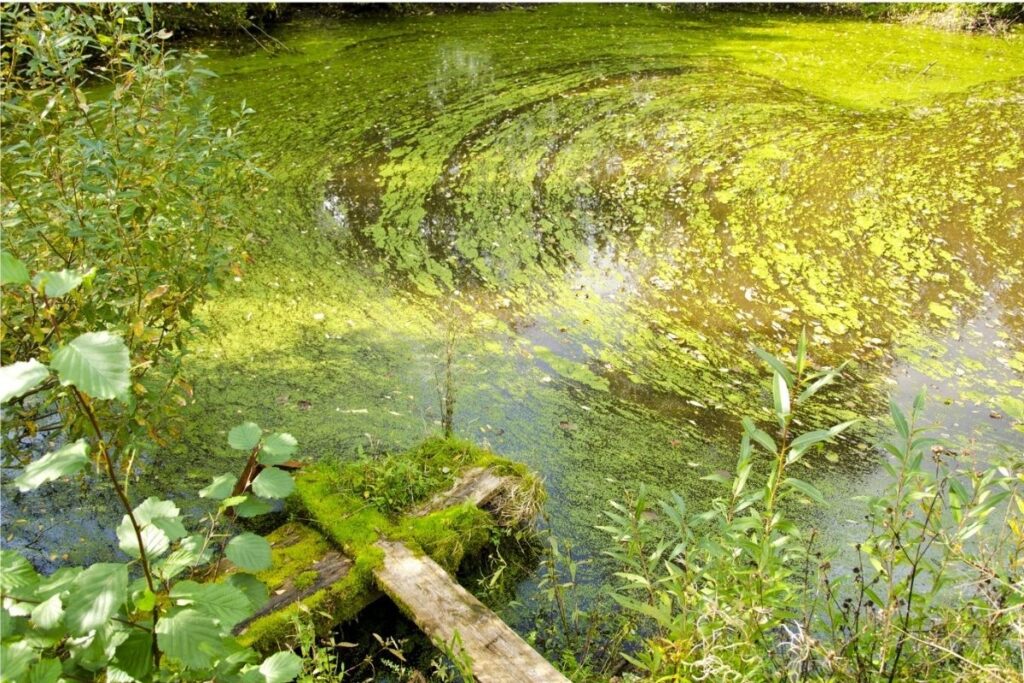
Some harmful algal blooms may also produce toxins that can build up in the bodies of fish and shellfish. Eating seafood exposed to such toxins can lead to poisoning in humans.
People may also develop respiratory ailments from inhaling vapours generated by winds and waves of bodies of water that are affected by harmful algal blooms. In general, people are also advised not to drink or swim in water with high algae levels to avoid ingestion and inhalation of toxins.
What we can do about Stormwater Pollution from Organic Waste
In urban and suburban areas, we can help reduce the nutrient load in stormwater by:
- Compost your yard debris – Keep dried leaves, shrub and grass clippings from scattering onto pavements, gutters and nearby storm drains by collecting and composting them.
- Clean up after pets – Prevent pet waste from washing away with stormwater by scooping it up and disposing of it according to council guidelines.
- Minimise fertiliser use – Fertiliser can be easily carried off your garden and into the storm drain by rainwater. Use fertiliser sparingly and avoid the application with predicted rainy weather.
- Avoid cutting lawn grass too short – Trim no more than one-third the length of the grass. Keeping your grass taller allows the roots to grow deeper, which also helps prevent soil loss and soak up more rainwater into the soil—reducing the volume of stormwater runoff.
- Street Sweeping – Councils can play an essential role by continued street sweeping, picking up organic matter and other pollutants before entering stormwater drains.
- Maintained Stormwater infrastructure – Gross pollutant traps capture organic matter and other gross pollutants magnificently. More traps throughout, specifically, urban areas, will significantly improve the health of all interconnected waterways and oceans.
Besides managing our own organic waste, we can also influence our neighbours and community to be more mindful of their impact on stormwater. We can also support our local government in enacting stormwater management initiatives and push for updating our stormwater infrastructure.
Working with farmers and co-developing best practice solutions to reduce agricultural runoff will also reduce stormwater pollution from organic waste in rural areas.
Correctly managed stormwater networks are critical to reducing all types of pollution from entering our precious waterways. Learn more about how we can stop most types of pollution at the source – the stormwater drain.

